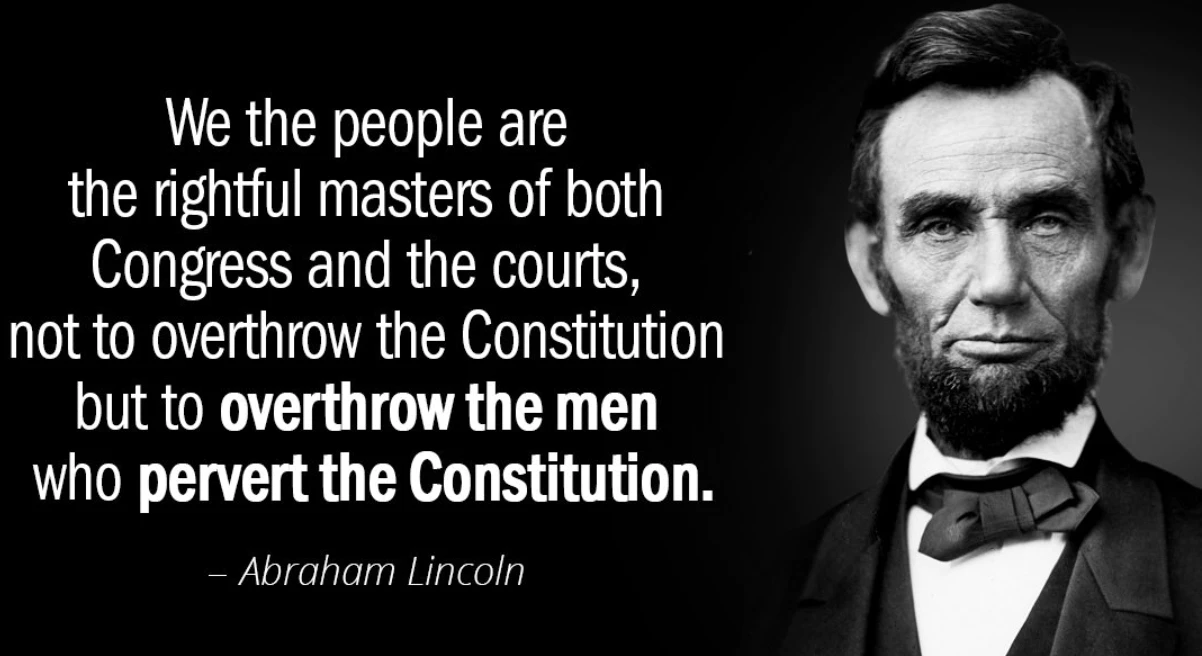「黑人的命也是命」捐款被拿去买豪宅 赞助者纳闷
世界新闻网
4/26/2022

明尼苏达州非裔男子佛洛伊德(George Floyd)2020年5月遭白人警察膝盖压颈致死后,全美各地爆发「黑人的命也是命」(Black Lives Matter)大规模抗议,许多民众纷纷掏腰包为反对种族歧视捐款。国家广播公司(NBC)报导,「黑人的命也是命」社运领袖在南加州买下价值600万元豪宅,让支持者感到纳闷。
报导指出,42岁加州白人妇女库莉亚‧裴索尔特(Kulia Petzoldt)说,2020年佛洛伊德事件发生后,觉得应该为追求种族正义尽一份力,于是带着女儿到奥克兰参加示威活动,还累计捐款数百元给「黑人的命也是命全球连接基金会」(Black Lives Matter Global Network Foundation)。
不过,「纽约杂志」(New York magazine)披露「黑人的命也是命全球连接基金会」社运领袖2020年10月以基金会款项在南加州购买600万元豪宅并设法隐瞒消息之后,包括裴索尔特在内的支持者则感到困惑。
对于不当使用捐款的批评声浪,国家广播公司报导,「黑人的命也是命全球连接基金会」共同创办人库勒斯(Patrisse Cullors)、「洛杉矶黑人的命也是命」(BLM Los Angeles)共同创办人阿布杜拉(Melina Abdullah)均出面驳斥,并表示由于受到死亡威胁,才买房子做为「安全庇护所」。
库勒斯与阿布杜拉表示,并未打算隐瞒购屋的消息,只是想等待状况安全的适当时间才公布。
阿布杜拉表示,由于住家经常遭到警察临检,因此带着两个女儿在「黑人的命也是命全球连接基金会」购买房子住过四次。她说,住豪宅的消息曝光后,总共收到2500则网络恐吓短信以及仇恨留言。
专门研究非营利组织的圣母大学( University of Notre Dame)法律教授梅尔(Lloyd Mayer)指出,有关非营利团体的捐款经费使用,法律规定是以保护捐款人做为出发点,捐款人有权期待捐赠款项的用途与募款声明符合。
梅尔指出,通常非营利组织发动募款时,声明中会附注善款将用来支持行政人员开销或房屋补贴,因此从法律角度来看,「黑人的命也是命全球连接基金会」购买豪宅的行为「与募款目标是一致的」。
他表示,购买豪宅是社运领袖颇具创意的手法,用来凸显种族正义问题,「但绝大多数捐款人可能没想到,善款竟被拿去在顶级社区买了一栋豪宅」。
梅尔表示,「黑人的命也是命」社运领袖如果要赢回社会大众信心,应该在保护个资讯息的前提下,公布组织的财务纪录。

The Corruption of our Nation
Inverted totalitarianism: The World Economic Forum represents global political capture by capitalism
By Robert W Malone MD, MS
Inventor of mRNA & DNA vaccines, RNA as a drug. Scientist, physician, writer, podcaster, commentator and advocate. Believer in our fundamental freedom of free speech.
4/22/2022

Because science, medicine and politics are three threads woven into the same cloth of public policy, we have to work to fix all three simultaneously. The corruption of political systems by global corporatists has filtered down to our science, medicine and healthcare systems and must be exposed. Furthermore, the perversion of science and medicine by corporate interests is expanding its reach; it is pernicious and intractable. Regulatory capture by corporate interests runs rampant throughout our politics, governmental agencies and institutes. The corporatists have infiltrated all three branches of government, and it is up to us, the people, to take control back. Corporate-public partnerships that have become so trendy have another name, that name is fascism- the political science term for the fusion of the interests of corporations and the state. Basically, the tension between the interest of the republic and its citizens (which Jefferson felt should be primary), and the financial interests of business and corporations (Hamilton’s ideal) has swung far too far to the interests of corporations and their billionaire owners at the expense of the general population.
The nation and its governing arms (including the intrenched bureaucracy often referred to as the “deep state”) now primarily serves the interests of multinational corporations, their managers and owners, instead of the other way around- serving the people. The term that best describes this system of government is called inverted totalitarianism. This term was first coined in 2003 by the political theorist and writer Dr. Sheldon Wolin. Inverted totalitarianism is what the government of the United States has devolved into, as he had warned might happen many years ago in the book “Democracy Incorporated”. The United States has been co-opted into a managed democracy. This democracy was placed into the hands of oligarchs by bureaucratic imperatives and managerial principles and practices, which have created a creeping form of totalitarianism. Now we can clearly see the liberties and freedom of this democracy being eroded rapidly just as Wolin predicted. The ending result is this new form of totalitarianism, that (unlike classical totalitarianism) does not have an authoritarian leader, but instead is run by a non-transparent group of managers and elites who run the country from within. What President Trump might call the “deep state.” Or what Steve Bannon originally called the “Uniparty”. In effect, our democracy has been turned upside down while being captured by corporate interests that endorse authoritarian policies – hence “inverted totalitarianism”.

The infiltration of this version of fascism has gone so far that even routine aspects of the political sphere are determined by corporate interests. This was cemented in the Supreme Court’s ruling in Citizens United v. the Federal Election Commission, a decision that reversed century-old campaign finance restriction laws. This ruling has enabled corporations and other outside groups to spend unlimited funds on elections.
As a nation, we are once again confronted by a historic conflict that goes back to Jefferson and Hamilton and founding of this country. Simply stated this is the old issue of whether capitalism is a tool of (representative constitutional) democracy or is democracy a tool of capitalism. Will democracy control capitalism or will capitalism control democracy? Two of our founding fathers, Jefferson and Hamilton, represent the two sides of the coin in this tension, and awareness of this dynamic conflict was built into our constitution. In theory, the people, through democratic representation, are empowered to elect leaders and pass laws, but when corporate financial interests become too powerful they are able to overthrow this relationship and capture political control by exerting financial power and influence over the political process.
In the 21st century, a new threat to democracy and the people’s rule has emerged. That is the party of Davos, the alliance of transnational corporations (TNC) and their representatives as the leaders and managers of global governance. This has yielded an emerging system of inverted totalitarianism on a global scale. Transnational corporate rule is not limited by national rules and regulations, and its tentacles are everywhere. At the national level, we see its effects on the judicial, legislative and executive branches. On the international level, the money and power from the transnational organizations has bought off entities like the World Health Organization. The nominal head and coordinating body of this globalized effort to control the world through capitalism has become the World Economic Forum, whose primary belief is that national boundaries are less important than global connectivity and management through corporatism.
Here we are today. In many ways, the hidden head of this unelected corporatist government structure is now the leadership of the World Economic Forum which meets annually in Davos Switzerland, where the heads of corporations and the apex predator financial firms come together to decide the governing decisions of the world (including the practice of medicine), and politicians and other influencers travel as supplicants akin to courtiers approaching an Emperor or a Pope.
Email: OaktonAcademy@gmail.com
https://www.oaktonacademy.com/
So, if inverted totalitarianism is smashed together with the development of such a global corporatist ruling elite, the question becomes who is running the United States? With the largest brush strokes possible, it comes down to the World Economic forum and the party of Davos. And what we have seen develop, worldwide, during the time of COVID is gross overreach, managerial incompetence and a reflexive tendency towards authoritarianism which has resulted in an appalling loss of life, liberty, and ability to pursue happiness here in America.
What somehow must be accomplished, if we wish to retain the US Constitutional form of government and the freedoms guaranteed by the founding documents, is to return to the primacy of the individual. “that government of the people, by the people, for the people, shall not perish from the earth.” It is people that should control the levers of government – we must return balance between the Jeffersonian and Hamiltonian ideals. Capitalism in the service of a representative democracy, not the other way around. That is what this great nation was founded on.
Resistance is almost the only way that this can be fought. It has to be organized; funding and the effort must have professional organizers.
Resistance has begun, largely in church communities and self-assembling social media aggregates, with people organizing to form autonomous groups outside of the formal power structures which include the two main political parties – both of whom have been significantly captured by corporate interests (the Uniparty). In order for this resistance effort to be successful, these groups will have to remove themselves from corporate influence and funding.
This is why the government, corporate interests and “mainstream” (corporate captured legacy) media find alternate social media platforms that they can’t control to be so threatening. They know these forums are a principal threat, and that they are key if the power structure is to flip back to control by the people as originally envisioned in the US Constitution.
A powerful popularist that is not tied to the global elite or narrative can also work to break the power of inverted totalitarianism. That is why President Trump, with all his flaws, was so popular. People responded to his messaging that the primacy of representative democracy, the idea that is so deeply connected to the American Enlightenment, is broken. That the “deep state” that Trump likes to speak of is real. And he is right, it is real. That the bureaucratic imperatives and managerial principles and practices that now make up the United States governing body are outside of the boundaries of what the founding fathers intended. Speaking for myself, I believe that I also threaten the powerful elite to some extent because I also am a populist, and that this is what has triggered such disproportionate propaganda, censorship and defamatory responses from the (corporate controlled) legacy media. I am outside the system. I do not represent uniparty-controlled corporatized science and medicine. This makes me a threat which must be eliminated as I become one of the many increasingly popular leaders of this resistance against global fascism.
Beyond the role of the populist, the corporate elite and managers have silenced many of the great American thinkers and doers of the last fifty years. To frame this regarding the specific case of science and medicine, Sheldon Wolin presciently wrote:
“One of the things we have seen over the last 30 or 40 years is a gradual silencing of people who are doctors or scientists,” Saul said. “They are silenced by the managerial methodology of contracts. You sign an employment contract that says everything you know belongs to the people who hired you. You are not allowed to speak out. Take that [right] away and you have a gigantic educated group who has a great deal to say and do, but they are tied up. They don’t know how to untie themselves. They come out with their Ph.D. They are deeply in debt. The only way they can get a job is to give up their intellectual freedom. They are prisoners.”
Regulatory and operational capture of the hospitals, health insurance and physicians is almost one hundred percent complete now. The government, big pharma, big tech and hospitalists have worked in consort to silence scientists and physicians. This is not something new. Sheldon Wolin defined the problem a decade ago. What is new is the rise of the Internet and social media to become the “town hall.” It is this tool that we can use to take our power back.
Healthcare Certification and ESL Programs
Each of us must take back our power regarding our own and our family’s health care. We must be responsible for our own bodies and not give that right away to others. We must choose our physicians carefully and conscientiously. Corporatist medicine and science must be avoided as primary sources for information. New, non-corporation influenced medicine and science sources need to be developed. That includes medical information aggregator sites and journals that are free from corporate influences.
Independent social media platforms and alternative news sources are key to building communities and organizations that can resist inverted totalitarianism. And because they are key to the resistance, governments and the corporate elite will work to censor and remove such platforms. That will include outright purchase, as well as a variety of governmental controls placed on alternate media sources. The current move to embrace censorship by the legacy media, big tech and their hypnotized minions are examples of what our future holds. Be ready to jump platforms. Archive email lists and be ready to activate new accounts quickly. It is the resistance that is important, not the platform.
This is a war to save our great nation. Be prepared, because this new form of global fascism, otherwise known as inverted totalitarianism, is an enemy like none of us have seen before. As we move forward on this fight to save the world, remember we have one big tool. That is our ability to resist. There are many people who are willing to resist, to change and to not accept a world where corporations rule by fiat. People that will work to create a world whereby medicine is more than just numbers and a way to sell new drugs and vaccines.
Do not forget the words of Abraham Lincoln:
“We the people are the rightful masters of both Congress and the courts, not to overthrow the Constitution but to overthrow the men who pervert the Constitution”

哈佛教授沃尔特:四个要点说明美国的好运即将用尽
文章来源: 星岛日报
01/31/2021
《外交政策》杂志近日刊出美国哈佛大学国际关系教授沃尔特的评论认为,美苏上个世纪冷战的结果是出现了短暂的单极世界,全世界已没有任何强大的竞争对手能挑战美国,可今天还是这样吗?美国人现在还能继续认为世界就是他们的囊中之物吗?不管他们表现得如何不负责任,事情总是会好起来?可能是,但也可能不是。以下为沃尔特的论点,以四个原因解释为什么说美国的好运可能正在耗尽:
首先,美国自建国以来所享有的自由安全已不像过去那么稳固。举个现成的例子:在不到一年的时间里,新冠病毒的致死人数已超过了美国在一战、朝鲜战争和越南战争期间的战死人数总和。而且我们还得知,有一股外国势力(一般认为是俄罗斯)最近非法侵入了大量政府信息系统,其中许多系统还是美国国家安全体系的一部分。
第二大隐忧是中国,这是一个比前苏联更强大的对手。从1776年到上世纪90年代中期,美国人可能收获到了一长串胜利,但自那以后,中国的成绩单更为亮眼。中国的经济规模将很快大幅超过美国,它早已远离毁灭性战争的威胁,其统治精英也相信他们注定会成为本世纪的一大(如果不是唯一的)领导力量,他们的制度模式总体运行良好,他们充分参与关键国际机构的活动中并出现在这个世界的每一个地区。
质疑美国是否会持续走运的第三个依据是,美国人已开始自己伤害自己。伤害清单很长:故意制造出来的两极分化以及由此产生的政治僵局使得美国难以及时采取行动去应对重大问题;对“自由”盲目崇拜以至于数百万美国人认为在疫情期间拒不佩戴口罩不是愚蠢的行为而是英雄壮举等等。
还有气候变化。如果大气层继续升温,那么无论多么有利的地缘政治条件都无法拯救美国。拥有一个庞大的经济体、一群训练有素的科学家和工程师以及一个具有创新能力的私人部门,可能有助于美国以各种方式减轻、适应和调整环境问题带来的压力,但他们所要应对的挑战却每年都会变得更加严峻。
VOICE
America’s History of Luck Is Running Out
The country’s rise was fueled by fortunate circumstances that seem unlikely to last much longer.
BY STEPHEN M. WALT | DECEMBER 23, 2020

The United States is the luckiest country in modern history. It began as a set of marginal European outposts, separated from the settlers’ home countries by a difficult sea voyage. When the colonies gained independence, they were weak, poor, and fractious. But in less than a century and a half, those 13 original colonies had expanded across North America, survived a civil war, driven other great powers from the Western Hemisphere, and created the world’s largest and most dynamic economy. That ascent didn’t stop until the end of the 20th century, when victory in the Cold War left the United States alone at the pinnacle of power. For a little while.
Americans like to attribute this remarkable story to their ancestors’ virtues, the enlightened wisdom of the Founding Fathers, and the intrinsic merits of America’s peculiar blend of liberal democratic capitalism. But in addition to the considerable cruelty displayed toward the native population and the slaves imported from Africa, good fortune played a major role as well.
Americans were fortunate that North America was rich with natural resources and fertile land, traversed by navigable rivers, and had a mostly temperate climate. And from the very beginning, the United States benefited from rivalries among the existing great powers. France backed the American Revolution in order to weaken its British rival, and the new nation doubled its territory when Napoleon needed money to wage war in Europe and was willing to sell the Louisiana Purchase at a bargain price. War in Europe also helped the United States survive its foolish decision to invade Canada in the War of 1812; Britain was too busy defeating Napoleon to turn its full strength against its obnoxious former colonists. The United States gradually attracted more attention as it expanded across the continent and took Texas, New Mexico, Arizona, and California from Mexico, but the European powers spent most of the time competing with each other and for the most part left the United States alone. By 1900, British concerns about a rising Germany led them to abandon their territorial claims in the Pacific Northwest and South America and appease the United States. And at that moment, the Monroe Doctrine of 1823 became a reality.
Indeed, no other great power has enjoyed the so-called free security that America has possessed since its founding. Apart from Britain, every other major power has been invaded at least once in the past 200 years, and several of them have been conquered and at least temporarily occupied. Even Britain lost some 50,000 civilians to German bombings during World War II. Foreign troops last occupied U.S. soil during the War of 1812, and the continental United States was effectively unscathed during the two world wars that decimated Europe and Asia during the 20th century. That free security also permitted the United States to be the last major power to enter both wars, to suffer the fewest losses, and to emerge in a dominant position when the fighting stopped.
To be sure, U.S. leaders also made some smart decisions that took advantage of these lucky breaks. They adopted a constitution that privileged individual freedom and spurred the creation of a boisterous capitalist economy. They opened the continent to immigrants from all over the world and managed to contain the frictions that waves of immigrants occasioned. And while the shameful legacy of slavery continues to blight the American experience, the North’s victory in the Civil War prevented a permanent division of the continent and allowed the reunited country to reach its full power potential.
Since becoming a great power, the United States has also been fortunate in its choice of enemies. Imperial Germany was a daunting military power, but its armed forces had been depleted by the time the American Expeditionary Force arrived in 1918. The Nazi Wehrmacht was even more capable, but Adolf Hitler was an incompetent strategist, and the Soviet Union did most of the work to defeat Germany anyway. Imperial Japan’s economy was roughly a fifth the size of America’s in 1941, its wartime leadership was deeply divided, and it already had thousands of troops bogged down fighting in China. World War II in the Pacific was hardly a cakewalk, but the outcome was not in doubt once the United States mobilized for war.
The Soviet Union was by far America’s most formidable adversary, but the deck was still heavily stacked in America’s favor. The Soviet economy was significantly smaller, its allies were much weaker and less reliable, and it faced serious rivals on several frontiers while America sat unthreatened in the Western Hemisphere. The Soviet command economy was a wonderland of waste and inefficiency, and Soviet leaders had to devote a much higher percentage of GDP to defense just to keep the United States in sight. Mikhail Gorbachev’s belated efforts to reform the system failed, and the Soviet Union collapsed not with a bang but with a whimper.
The result was a brief unipolar moment when the United States faced no serious rivals and both politicians and pundits convinced themselves that America had found the magic formula for success in an increasingly globalized world. The hubris of the 1990s was to be expected, perhaps: No other country could claim such a long and mostly unbroken run of success, where ill fortune never seemed to hold the country back for long.
Is this still the case today? Can Americans continue to assume that the world is their oyster and that things will always turn out right no matter how irresponsibly they seem to behave?
Maybe, but maybe not. Here are four reasons why the United States’ luck just might be running out.
First of all, the free security that the nation has known since its founding is not quite as profound as it used to be. Don’t get me wrong: Having no serious enemies nearby is still a considerable benefit, and those two vast oceanic moats still protect the United States from a fair number of potential problems. The Pentagon is formally the “Defense Department,” but America’s armed forces don’t spend much time or money defending U.S. soil directly. Instead, they go into harm’s way in order to try to shape political conditions in a host of faraway places. Why can they do that? Because Americans don’t have to worry about an invasion from Canada or Mexico—or anybody else.
Unfortunately, 2020 has given us a grim reminder that the protection the United States once enjoyed is not as ironclad as it once was. Case in point: In less than a year, the coronavirus has killed more Americans than World War I, the Korean War, and the Vietnam War combined. As I write this, the daily death toll in the United States is larger than the number of Americans killed on 9/11. Distance still matters, but it does not protect against every danger.
We also learned last week that a foreign power (generally believed to be Russia) has hacked into a vast array of government computer systems, including many that are part of the U.S. national security establishment. The full extent of the damage is still unknown, but the incident illustrates another vulnerability that distance cannot diminish. The United States is still fortunate to be located where it is, but that advantage is not as great as it once was.
The second cause for concern is China, which is a far more formidable rival than the Soviet Union ever was. Americans may have racked up a long winning streak from 1776 to the mid-1990s, but China boasts a much better record since then. China’s economy will soon be substantially larger than that of the United States, it has stayed out of ruinous wars, its ruling elites believe they are destined to be a (if not the) leading power in this century, their model of single-party state capitalism has generally worked well, and they are fully engaged in key international institutions and in every region in the world. While the Trump administration has been busy flirting with various forms of protectionism, China has been negotiating and signing new trade and investment deals. Beijing’s mishandling of the coronavirus outbreak allowed it to spread abroad, but its subsequent response (and the cooperation of the population) has kept its own death toll below a reported 5,000 lives (in a country of 1.4 billion people). As a result, the Chinese economy is back open for business. The United States had more time to prepare for the pandemic, but the number of dead is well over 300,000, and the U.S. economy is still devastated by lockdowns and other pandemic-related restrictions.
The challenge China poses could be overstated. China’s per capita income is still significantly lower than America’s, and its new power surplus (i.e., the amount of wealth that can be mobilized to shape events elsewhere once domestic needs are met) is smaller. Its splashy Belt and Road Initiative hasn’t gone nearly as well as Xi Jinping hoped, and its recent embrace of belligerent “wolf warrior” diplomacy and its heavy-handed approach toward dissidents, trading partners, and its Uighur minority have sparked growing concerns about China’s long-term intentions. Even so, only an incurable optimist would assume that China will fall by the wayside as readily as America’s earlier rivals did.

A third reason to wonder about the United States’ continued good fortune is the series of wounds Americans decided to inflict on themselves. The list is long: the ; the deliberately manufactured polarization and the resulting gridlock that makes timely action on vital issues difficult to impossible; the fetishizing of “liberty” to the point that millions of Americans think refusing to wear a mask in the middle of a pandemic is not stupid but heroic; the enduring public prominence of a phalanx of liars, charlatans, and trolls who have built lucrative careers spewing a toxic blend of falsehoods and hatred; the pervasive influence of well-funded lobbying organizations whose commitment to truth is paper-thin; the distorting impact of money in U.S. politics and a ramshackle electoral system that increasingly enshrines minority rule; and a foreign-policy elite that is largely free from accountability and seems incapable of learning from past mistakes. I could go on, but you get the idea.
And then there’s climate change. The atmosphere doesn’t care what you or I happen to think about this problem; it’s going to follow the laws of physics and chemistry no matter what we choose to believe. Humans are free to deny the reality of climate change, but the planet isn’t paying attention. Favorable geopolitics won’t rescue the United States if the atmosphere keeps heating up (though some other countries will face even greater hardships), and having big-deck aircraft carriers, sophisticated ballistic missiles, state-of-the-art anti-submarine warfare or cyberwarfare capabilities, and the other trappings of a modern great power won’t help on this front either. A large economy, well-trained scientists and engineers, and an innovative private sector may help the country mitigate, adapt, and adjust in various ways, but the challenges they will have to address grow ever more daunting each year. When you marry what is happening to the planet to the political dysfunctions discussed above, it’s easy to imagine how the United States’ long run of good fortune could come to a sad end in a generation or two.
Am I being too gloomy? I hope so. The United States retains many strengths—especially in science and technology—and its potential rivals face serious problems of their own. A return to the unchecked primacy of the 1990s is not in the cards, but intelligent reforms could go a long way to preserving the security and prosperity of the country along with its core political values. The imminent departure of the Worst President Ever will surely help.

Branch Rickey famously remarked that “luck is the residue of design.” Americans should no longer assume that success is simply their birthright or that Otto von Bismarck was right when he reportedly quipped that there is “special providence for fools, drunkards, and the United States of America.” If Americans want to enjoy a future as favorable as their past, it will take a willingness to work together that has gone missing for a couple of decades. If they can’t bring it back, the United States’ long run of luck is likely to come to an end.
Stephen M. Walt is the Robert and Renée Belfer professor of international relations at Harvard University.
Source: https://foreignpolicy.com/2020/12/23/americas-history-of-luck-is-running-out/










